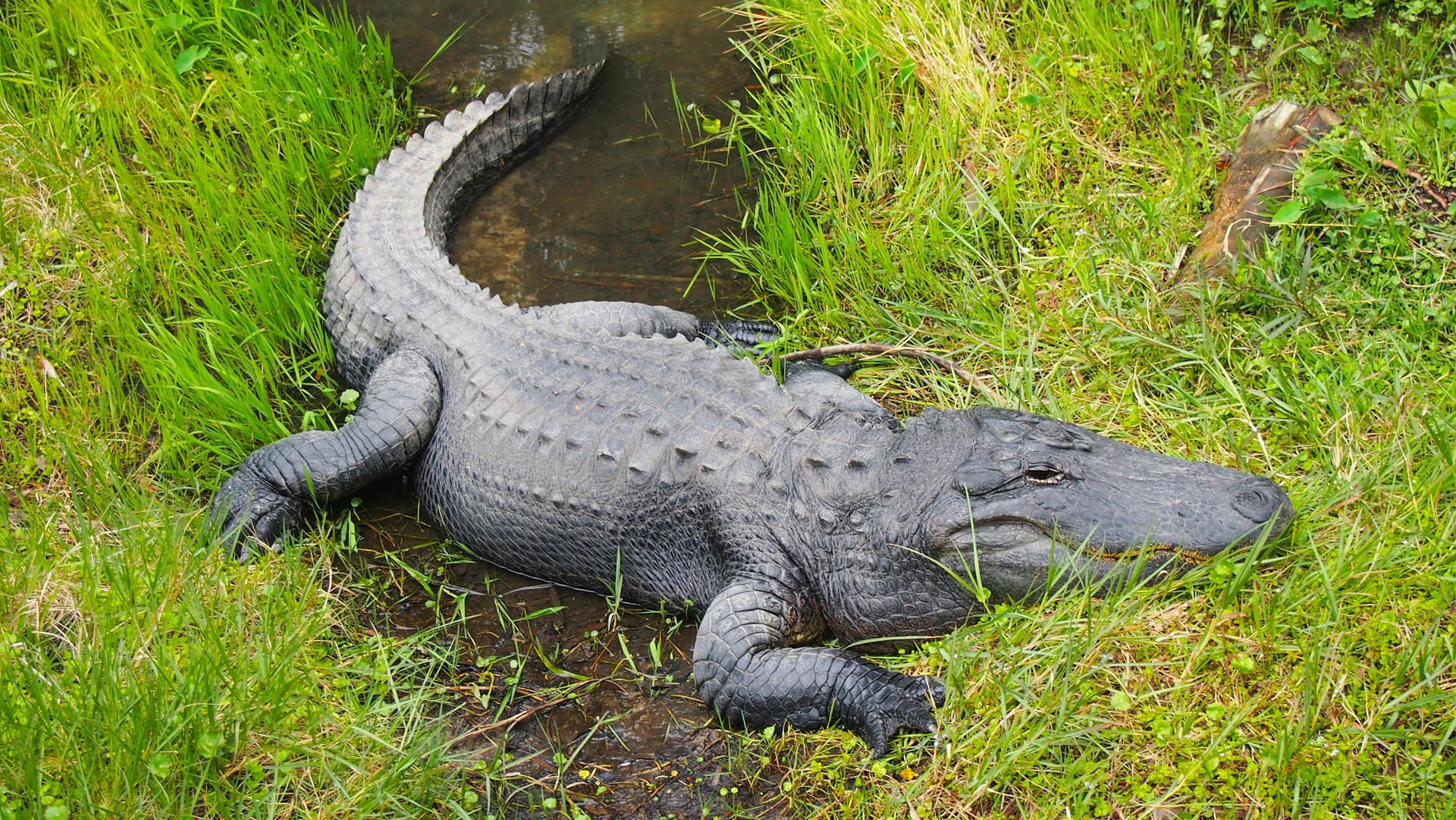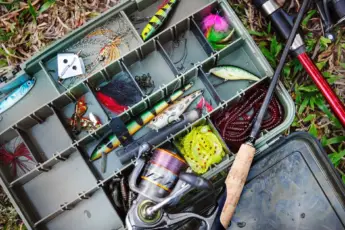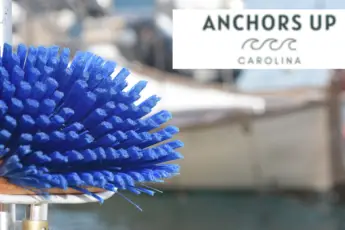Freshwater fishing in Georgia, South Carolina, and North Carolina are excellent. The lakes offer a wide range of fish species for anglers to target. While alligators are not present in all parts of the three states, an angler must be aware of the possibility of an alligator’s presence. Whether walking the banks, at anchor on a boat, or wading into rivers, lakes, or ponds, remain vigil that the prehistoric creature is likely lurking in the vicinity. In the event, you stumble upon an alligator in water while fishing, know what to do.
What Kind Of Alligator Live In Georgia, South Carolina, and North Carolina
The American Alligator is present in all three of the states. American Alligators measure up to fifteen feet and length, weighing nearly 1,000 pounds.
When it comes to strength, the jaws of an alligator can produce just under 3,000 pounds of force. Anglers must steer clear of gators for the simple fact of shear strength.
What Parts Of North Carolina, South Carolina, And Georgia Do Alligators Live
It is essential to understand that alligators thrive in freshwater. However, they are capable of living in brackish water. Brackish water is a mixture of both fresh and saltwater. Never let your guard down when fishing near the coastal regions of the three states.
North Carolina
North Carolina is prone to the coldest winter months when compared to Georgia and South Carolina. As a result of the temperatures, the alligator populations fall more densely along the state’s eastern portion, particularly near the coast.
South Carolina
Anglers in South Carolina stumble across alligators further inland than when compared to North Carolina. The winter temperatures are mild; therefore, the range is increased. Expect to find gators from the coast to the middle portion of the state.
Georgia
As you venture south into Georgia, the range again grows. Alligator populations are expected from the coast to the city of Atlanta.
How Do You Identify Alligator In Water Or On Land
Identifying an alligator by sight is a challenging proposition. The American Alligator remains low in the water and appears as a floating log or other debris when swimming. Make your best effort to locate the eye’s position behind the powerful jaws. Remain clear and do not cast towards the gator.
When the alligator suns, they crawl onto the bank to bask in the sun. It is not uncommon for gators to bask in easily identifiable locations, including manicured backyard lawns. In this situation, spotting the creature is a simple task. Don’t be fooled, alligators seek shelter in tall weeds. Unsuspecting anglers are steps away from gators resting on the shore.
Lastly, the most dangerous situation is when an alligator is positioned in the water within feet of the shore. The gator is both challenging to spot and in a ready position to strike at an unsuspecting angler.
What Should You Do To Remain Safe From Alligators
The primary rule is to remain a safe distance from alligators, whether on land or boat. Take caution when walking banks by remaining inland before thoroughly inspecting the area and approaching the water to cast a line. Most importantly, avoid the evening hours.
Do not drive towards an alligator on a boat and move the boat in the opposite direction should a gator approach.
Lastly, never cast towards an alligator. The gator will chase and strike an artificial or live bait. The same goes for hooked fish. Retrieve hooked fish at a rapid rate, or else it will become gator bait.
What To Do If An Alligator In Water Or Land Chases You
On land, alligators are slow-moving creatures with the capability to run short distances. Taking into account their reduced mobility, an alligator is escapable by foot.
When unsuspectingly walking on a gator or while being chased, run in a straight line opposite the alligator at full speed for a minimum of thirty feet. Glance back to ensure you are clear.
How Do You Fend Of An Alligator Attack
In the unlikely event you are bitten by a gator, use these steps to free your body.
With all of your strength, punch the sensitive snout repeatedly. The gator does not prefer the feeling and relaxes the jaws. A second step is gouging the eyes. Take your thumbs and dig the tips into the eyes of the alligator again until it opens its mouth.
Once the alligator lets you free, swim or run away from the gator as quickly as possible.
Now You Know What To Do When Spotting Alligator In Water Or Land
Alligators are rarely aggressive, but caution must be taken when in their habitat to avoid a situation. It is challenging spotting alligators in the water and on land because of their camouflage and plant life. The best method to ensure safety while fishing is maintaining a safe distance and keeping a sharp eye for gators.






